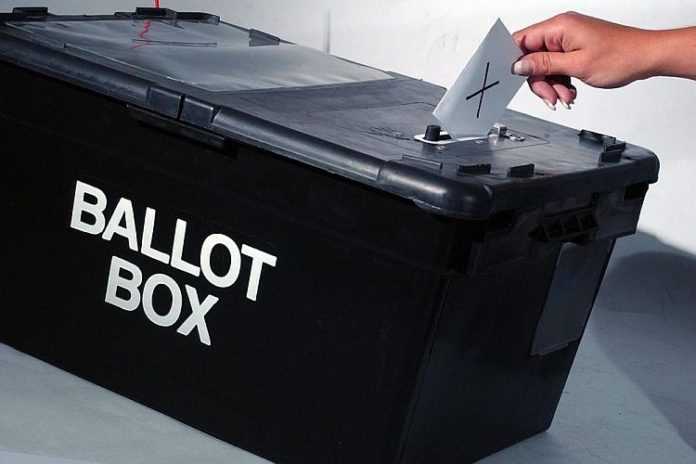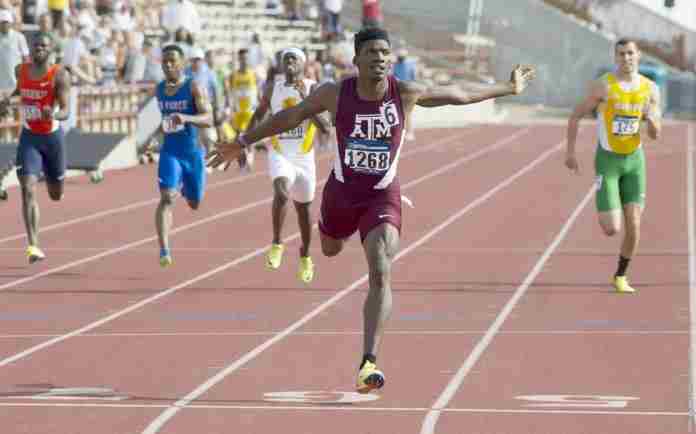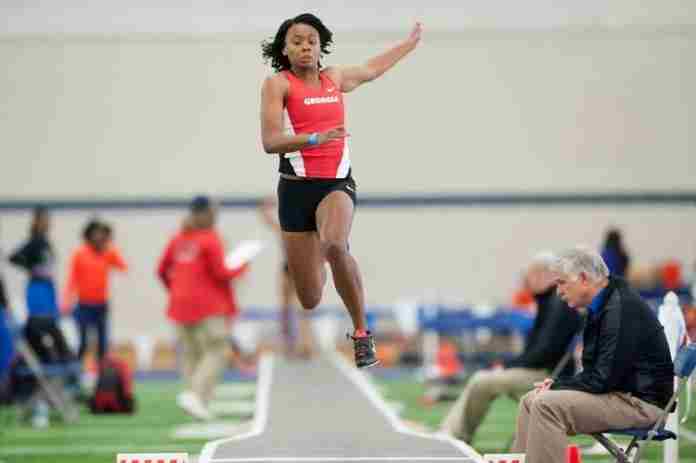(For our updated Highlights review of last week’s top competitions, click here)
Voting matters, and Chinese athletes did so early and often, helping to shape the outcome of the discussion on athlete protests at the Olympic Games.
The IOC Athletes’ Commission released a lengthy report last week concerning its research and recommendations concerning Rule 50.2 of the Olympic Charter, which bans demonstrations and protest at the Olympic Games.
The outcome was that a significant majority were against protests during the Opening Ceremony, on the field of play, or during award ceremonies (not all totals add to 100% due to rounding):
● Opening: 14% in favor – 69% against – 11% maybe – 5% don’t know
● On-field: 14% in favor – 71% against – 11% maybe – 5% don’t know
● Podium: 16% in favor – 67% against – 12% maybe – 5% don’t know
There was more support for more athlete expression off the field, but none of the other options offered for more expression reached 50% approval:
● Oly. Village: 28% in favor – 49% against – 17% maybe – 6% don’t know
● Mixed Zone: 36% in favor – 41% against – 18% maybe – 5% don’t know
● Press Conf.: 38% in favor – 40% against – 17% maybe – 5% don’t know
● Interviews: 42% in favor – 37% against – 17% maybe – 5% don’t know
Wow! So where did this come from? The report also included a 53-page appendix of the survey data from Publicis Sport & Entertainment, with some fascinating numbers concerning who responded and how.
The overall totals showed 3,547 athletes – 55% Olympians and 45% Olympic “hopefuls” – responded, covering 185 of the 206 National Olympic Committees, all 41 sports on the Olympic and Winter Games programs and with 50% female respondents, 49% male and 1% who preferred not to specify. There were 13 NOCs with 60 or more responses and this was fascinating:
(1) 489, China, or 14% of the total
(2) 249, United States, or 7% of the total
(3) 195, Japan, or 5.5% of the total
(4) 181, France
(5) 159, Germany
(6) 148, Canada
(7) 135, Great Britain
(8) 120, Australia
(9) 96, South Korea
(10) 75, Italy
(11) 68, Mexico
(11) 68, Russia
(13) 61, Netherlands
(14-16) Brazil, New Zealand and South Africa all cast 40 or more votes
The top 13 comprise 1,969 or 55.5% of all votes cast; the other 172 NOCs cast 1,578 votes or an average of nine votes each. If we assume that Brazil, New Zealand and South Africa averaged 45 votes each, the other 169 NOCs are down to an average of 8.5 votes each.
China (489), Japan (195) and Korea (96) cast 780 votes or 21.9% of the total! The six European countries in the top 13 cast a total of just 679 votes, or 19.1%. The U.S., Canada and Mexico together comprised 13.1% of the total, less than China alone.
So the impact of the Asian vote was significant and say what you will about China – a thoroughly totalitarian regime – they know how to vote when given the opportunity. And the contrast between the views of the Chinese athletes, often mirrored by the Russians, and those of the U.S., Japan and France – with the next highest vote totals – was stunning. Consider:
On Opening Ceremony protests or demonstrations:
● 91% against: China
● 84% against: Russia
● 76% against: France
● 64% against: Japan
● 61% against: United States
On Field-of-Play protests or demonstrations:
● 92% against: China
● 85% against: Russia
● 78% against: France
● 66% against: Japan
● 62% against: United States
On Awards Ceremonies protests or demonstrations:
● 91% against: China
● 84% against: Russia
● 77% against: France
● 68% against: Japan
● 53% against: United States
Moreover, Chinese and Russian athletes were against all forms of “athlete expression” offered in the survey:
● Olympic Village: 90% against for China, 72% against for Russia
● Mixed Zone: 87% against for China, 56% against for Russia
● Press Conf.: 87% against for China, 56% against for Russia
● Interviews: 85% against for China, 56% against for Russia
None of the other large-vote countries reached 50% against for the Mixed Zone, press conferences or media interviews. Five other countries – South Africa, Brazil, Netherlands, Australia and France – were from 50-59% against expressions in the Olympic Village.
The survey also explored new avenues for “expression,” and the results mostly reflected the same general views, with some differences:
On a “moment of solidarity against discrimination” in the Opening Ceremony:
● In favor: Mexico (72%), Canada (69%), Italy (67%)
● Against: China (12% in favor), Japan and Russia (26%)
● U.S. was 59% in favor
On an area for free expression in the Olympic Village:
● In favor: Mexico (68%), Brazil (57%), Canada (56%)
● Against: China (11% in favor), Japan and Netherlands (18%)
● U.S. was 51% in favor
On apparel or armbands in the venues with a “collective message”:
● In favor: Mexico (59%), Italy (53%), Canada and Brazil (47%)
● Against: Russia (18% in favor), Japan (21%), Netherlands (25%)
● U.S. was 36% in favor; China was 28% in favor
On apparel or armbands with a “personal message”:
● In favor: Mexico (46%), Canada (43%), South Africa (39%)
● Against: China (6% in favor), Japan (10%), Russia (13%)
● U.S. was 35% in favor
On allowing “physical gestures” as demonstrations in venues:
● In favor: Canada (41%), U.S. (40%), Mexico (34%)
● Against: China (4% in favor), Russia (10%), Japan (15%)
What do these figures tell us?
If the Olympic Movement values diversity as much as it says it does, this was a good survey: it reflected a wide range of opinions, values and cultures. Asian cultures have historically valued societal consensus and that’s exactly what the survey showed for demonstrations in public places; individual expressions were frowned upon.
By contrast, the more individualistic cultures of Canada, Mexico and the U.S. were generally in favor of collective, positive messaging, of personal expression in private spaces such as interviews, but against personal messages in public forums like awards, where one person’s protest could impact that moment for someone else.
Europe has been the home of the modern Olympic Movement, but the modest participation by European athletes in the survey was remarkable. Only France (4th), Germany (5), Great Britain (7) and Italy (10) were among the 10 highest vote totals. Perhaps Europe cast the most votes overall, but the totals by National Olympic Committee were not released in depth.
Perhaps most disturbing is that there were 34 NOCs which sent 100 or more athletes to the 2016 Olympic Games in Rio de Janeiro, but only eight NOCs which registered 100 or more responses to the IOC Athletes’ Commission questionnaire.
Former U.S. President Barack Obama famously said in 2016 that “elections matter and that voting counts.” With 14% of all votes cast on “athlete expression,” Chinese athletes did not determine the outcome, but made a significant impact, especially when so relatively few others bothered to participate.
Athletes and NOCs may want to remember that when the details on implementation and sanctions come out later this year.
Rich Perelman
Editor
You can receive our exclusive TSX Report by e-mail by clicking here. You can also refer a friend by clicking here, and can donate here to keep this site going.
For our 649-event International Sports Calendar for 2021 and beyond, by date and by sport, click here!


























